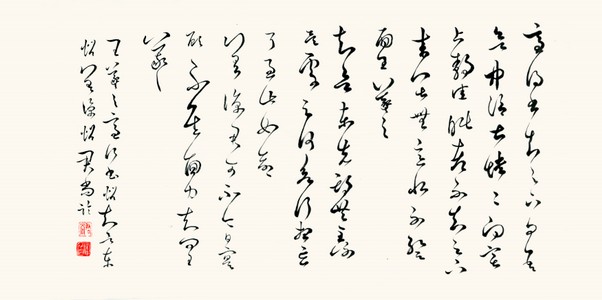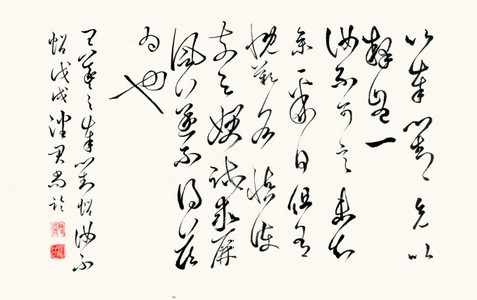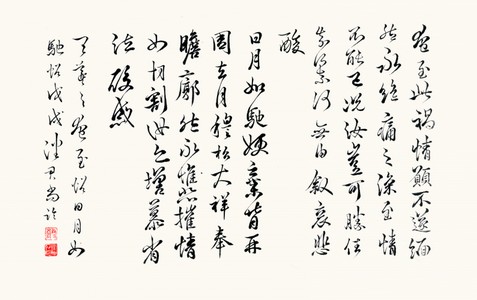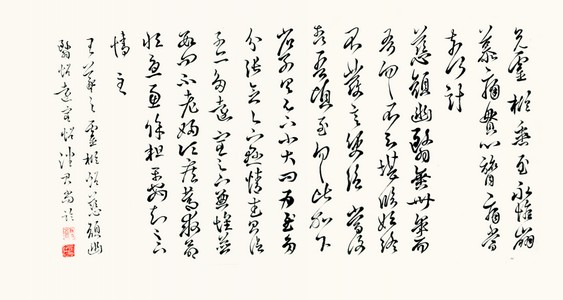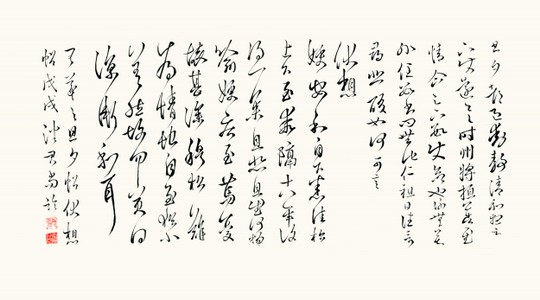Galleries and Translations > Models of Masterpieces > Models of miscellaneous Masterpieces by Wang Xizhi (part I) 臨王羲之諸法帖 (第一部份)
Models of miscellaneous Exemplary Masterpieces by Wang Xizhi (part I) 臨王羲之諸法帖 (第一部份)
Historical information
(I)
Wang Xizhi (王羲之) is often considered to be the most outstanding Chinese calligrapher of all time and is regarded as “The Sage of Calligraphy (書聖)” in China and Japan. Born in 303AD in an upper-class aristocratic family, Wang Xizhi started learning Chinese calligraphy at the age of seven from the renowned calligrapher Wei Shuo (衛鑠 or 衛夫人, 272-349AD). His father, Wang Kuang (王曠, ?-?AD), was a government prefecture chief (太守) and was also a calligrapher. His uncle, Wang Dao (王導, 276-339AD), was the prime minister (丞相) during the reign of Emperor Cheng of the Eastern Jin Dynasty (晉成帝, 321-342AD ). Further biographic information of Wang can be seen on my page regarding Lanting Xu (蘭亭帖).
(II)
The calligraphies presented below are my models of Wang Xizhi's handwriting found in Chunhua Imperial Archive of Calligraphy Exemplars (《淳化閣帖》). Supposedly, these handwritings were short letters and memos scribed by Wang. Although their authenticities are questionable, they are still often regarded as Exemplary Masterpieces (法帖) for calligraphers to study and observe. In the art of Chinese calligraphy, "帖(pronounced as Tie)" refers to an exemplary work that should be studied by all .
(III)
Since the originals in the Chunhua Imperial Archive of Calligraphy Exemplars (《淳化閣帖》) can be parts of or whole letters/memos scribed by Wang, translations that are provided below, if available, may not be entirely precise, for they can be interpreted out of context. Further, whether Wang had actually scribed them remains questionable. Accordingly, scholars should be wary of using these as authentic historical references.
A model of Shi De Shu Tie (適得書帖), Zhi Yu Dong Tie (知欲東帖), Cha Liang Tie (差涼帖)
35 X 70 cm
Click to Enlarge. Reserved, not available in shop.
Shi De Shu Tie (適得書帖):
Original Classical Chinese: 適得書,知足下問。吾欲中冷,甚憒憒! 向宅上靜,佳眠,都不知足下來門,甚無意。恨不暫面。王羲之。
English: I have just received your letter and gratefully acknowledge your consideration. I am on the verge of a Cold strike and feel very muddled. Because I went inside and had a good sleep in the quiet, I did not notice at all that you came. How very amiss of me. I regret not having met you just now. Wang Xizhi. (Translated by Antje Richter & Charles Chace in The Trouble with Wang Xizhi: Illness and Healing in a Fourth-Century Chinese Correspondence (T’oung Pao 103-1-3 (2017) 33-93))
Zhi Yu Dong Tie (知欲東帖):
Original Classical Chinese: 知欲東,先期共至謝吳處。云何欲行?想忘耳。過此如命。
English: NA. The entire phrase may not be translated, for the context in which it was written is unknown or uncertain.
Cha Liang Tie (差涼帖):
Original Classical Chinese: 差涼,君可不?今日實顧不?遲面,力知問。王羲之。
English: NA. The entire phrase may not be translated, for the context in which it was written is unknown or uncertain.
A model of Feng Dui Tie (奉對帖) and Ru Bu Tie (汝不帖)
35 X 56 cm
Click to Enlarge. Reserved, not available in shop.
Feng Dui Tie (奉對帖) :
Original Classical Chinese: 比奉對對兄以釋豈一!
English: NA. The entire phrase may not be translated, for the context in which it was written is unknown or uncertain.
Ru Bu Tie (汝不帖):
Original Classical Chinese: 汝不可言,未知集聚日,但有慨嘆。各慎護。前與嫂試求屏風,遂不得答為也。
English: NA. The entire phrase may not be translated, for the context in which it was written is unknown or uncertain.
A model of Yan Zhi Tie (奄至帖) and Ri Yue Ru Chi Tie (日月如馳帖)
35 X 56 cm
Click to Enlarge. Reserved, not available in shop.
Yan Zhi Tie (奄至帖):
Original Classical Chinese: 奄至此禍,情願不遂。緬然永絕,痛之深至。情不能已,況汝豈可勝任。奈何奈何。無由敘哀,悲酸!
English: NA. The entire phrase may not be translated, for the context in which it was written is unknown or uncertain.
Ri Yue Ru Chi Tie (日月如馳帖):
Original Classical Chinese: 日月如馳,嫂棄背再周,去月穆鬆大祥,奉瞻廓然,永惟悲摧,情如切割,汝亦增慕,省疏酸感。
English: NA. The entire phrase may not be translated, for the context in which it was written is unknown or uncertain.
A model of Ling Jiu Tie (靈柩帖), Ci Yan You Yì Tie (慈顏幽翳帖), and Yua Huan Tie (遠宦帖)
35 X 66 cm
Click to Enlarge. Reserved, not available in shop.
Ling Jiu Tie (靈柩帖):
Original Classical Chinese: 兄靈柩垂至,永惟崩慕,痛貫心膂,痛當奈何!計。
English: NA. The entire phrase may not be translated, for the context in which it was written is unknown or uncertain.
Ci Yan You Yì Tie (慈顏幽翳帖):
Original Classical Chinese: 慈顏幽翳十三年而吾勿勿不知堪臨,始終不?發言哽絕,當復奈何?吾頃至劣劣,比加下。
English: NA. The entire phrase may not be translated, for the context in which it was written is unknown or uncertain.
Yua Huan Tie (遠宦帖):
Original Classical Chinese: 省別具,足下大小問為慰。多分張。念足下懸情,武昌諸子亦多遠宦。足下兼懷,並數問不?老婦頃疾篤,救命,恆憂慮。余粗平安。知足下情至。
English: I have read your letter elsewhere expressing your greetings towards everyone in my family, thank you very much. Most of us along with yourself have now separated and lived in different places, very much thinking of you and your affection. Wuchang and others are also now officials in various distant places. You also miss them, have you communicated with them as well? My old wife recently is often coming down with serious ailments, her life is often on the line and I am constantly worried about her. Everyone else is more or less well. I am grateful for your warmth. (interpreted by KS Vincent Poon based on the vernacular Chinese interpretation below by Professor Lin Li E)
Vernacular Chinese Interpretation: 在別處看到您(王羲之的好友周撫)的來信,問候起我家族裏的大大小小,甚為感謝。大家多分散各地,感念您的懸念之情!陶武昌(陶侃,鎮守武昌。周撫之妹為陶侃的媳婦)諸子亦多遠在各地作官。你同時亦多關懷,都常通信嗎?我的老妻最近常病重,為了病危搶救常擔憂。其他人都大致平安。非常感念您的情深意厚!(譯者:林麗娥教授)
A model of Dan Xi Tie (旦夕帖) and Fu Xiang Tie (伏想帖)
35 X 63 cm
Click to Enlarge. Reserved, not available in shop.
Dan Xi Tie (旦夕帖):
Original Classical Chinese: 旦夕都邑動靜清和,想足下使還,具時州將。桓公告慰情,企足下數使命也。 謝無奕外任,數書問,無他。仁祖日往,言尋悲酸,如何可言。
English:Recently, the atmosphere in the capital is calm and peaceful. I believe your return after fulfilling the duties as an envoy shall sufficiently qualify you to be promoted to “Zhou Jiang (州將)”. Mr. Huan was very pleased once he heard the news, and he expected you to bear the responsibilities as always. Xie Wuyi is out of town succeeding his elderly brother’s position. He wrote several letters to me and nothing was remarkable. Jinso passed away and I visited his home several days ago. My mind was full of sadness and sorrows, no words were able to express them. (interpreted by KS Vincent Poon based on the vernacular Chinese interpretation below by Professor Lin Li E)
Vernacular Chinese Interpretation: 近來京中情況清靜平和,您(王羲之的好友周撫)這次出使回來,當已具備升任州將的條件了。桓公(桓溫,周撫曾助桓溫平定四川,後來被封為益州刺史,鎮守蜀地三十餘年)聞信後表示欣慰,並深切期待您常能擔負起使命來。謝無奕(范曄的姪子,謝尚的弟弟,謝尚字仁祖)外出繼任其兄的職位,數次來信,一切平安沒事。謝仁祖過世之後,我日前尋訪他的住處(「言」為語助詞),心裏有無限的悲酸難以表達!(譯者:林麗娥教授)
Fu Xiang Tie (伏想帖):
Original Classical Chinese: 伏想嫂安和,自下悉佳,松上下至乖隔十八年,復得一集,且悲且慰,何指喻。嫂疾至篤,憂懷甚深,穆松難為情地,自慰猶小差,然故忽忽,冀得涼漸和耳。
English: NA. The entire phrase may not be translated, for the context in which it was written is unknown or uncertain.
